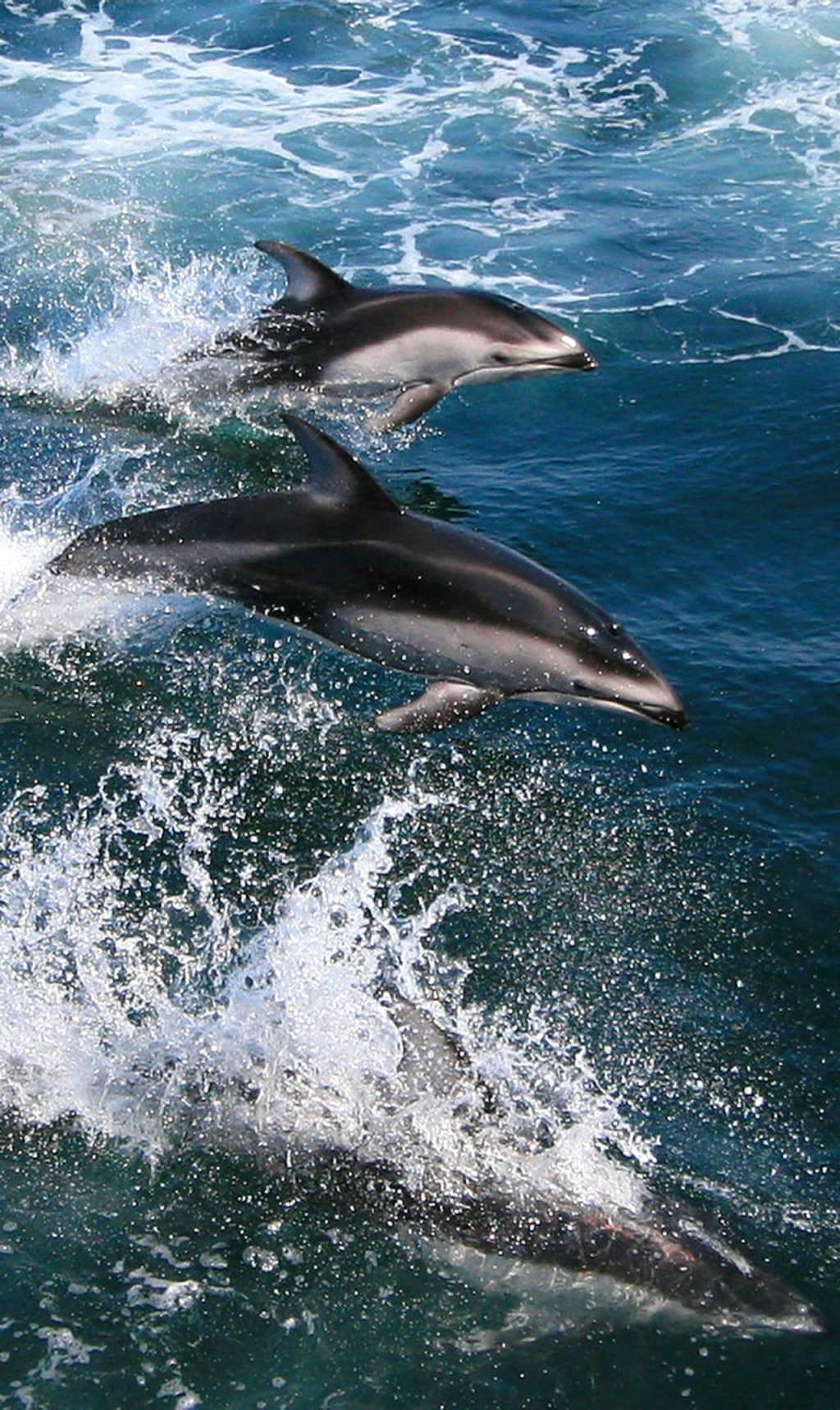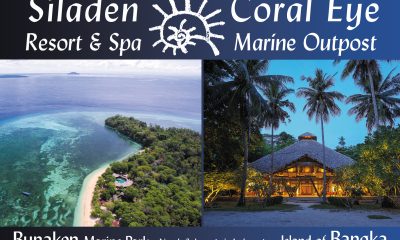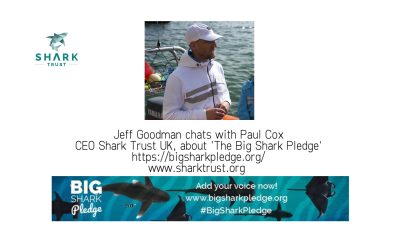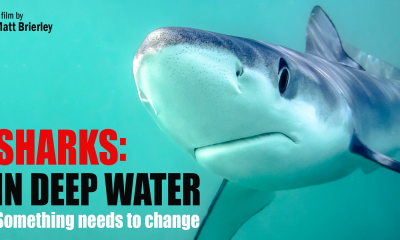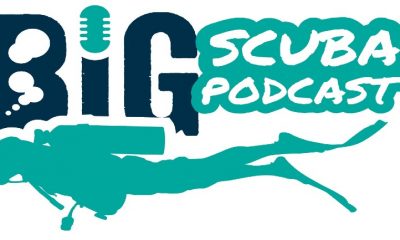News
How Do Marine Mammals Avoid the Bends?
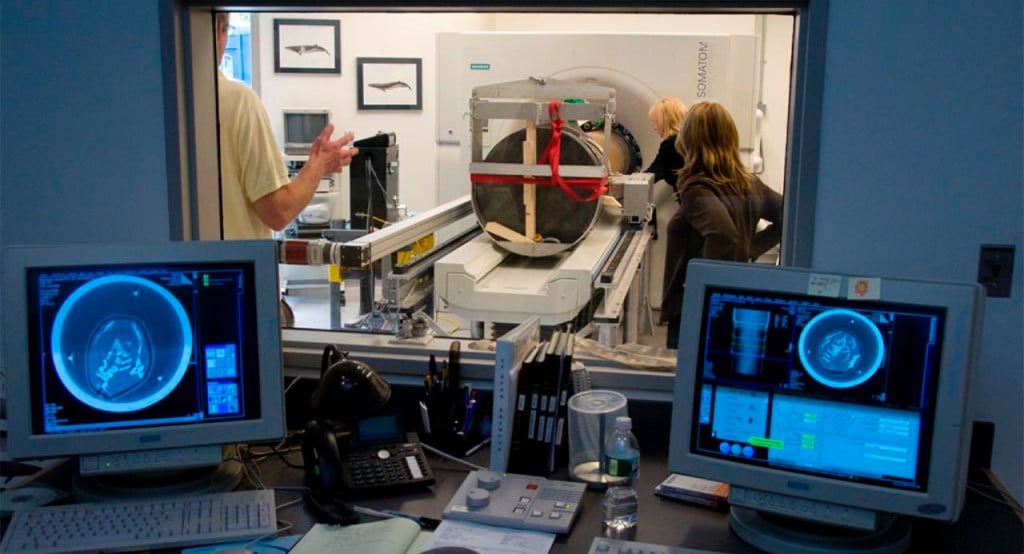
Study offers new hypothesis and highlights role that sonar plays in strandings
Deep-diving whales and other marine mammals can get the bends—the same painful and potentially life-threatening decompression sickness that strikes scuba divers who surface too quickly. A new study offers a hypothesis of how marine mammals generally avoid getting the bends and how they can succumb under stressful conditions.
The key is the unusual lung architecture of whales, dolphins and porpoises (and possibly other breath-holding diving vertebrates), which creates two different pulmonary regions under deep-sea pressure, say researchers at the Woods Hole Oceanographic Institution (WHOI) and the Fundacion Oceanografic in Spain. Their study was published April 25, 2018, in the journal Proceedings of the Royal Society B.
“How some marine mammals and turtles can repeatedly dive as deep and as long as they do has perplexed scientists for a very long time,” says Michael Moore, director of the Marine Mammal Center at WHOI and co-author of the study. “This paper opens a window through which we can take a new perspective on the question.”
When air-breathing mammals dive to high-pressure depths, their lungs compress. That collapses their alveoli—the tiny sacs at the end of the airways where gas exchange occurs. Nitrogen bubbles build up in the animals’ bloodstream and tissue. If they ascend slowly, the nitrogen can return to the lungs and be exhaled. But if they ascend too fast, the nitrogen bubbles don’t have time to diffuse back into the lungs. Under less pressure at shallower depths, the nitrogen bubbles expand in the bloodstream and tissue, causing pain and damage.
Marine mammals’ chest structure allows their lungs to compress. Scientists have assumed that this passive compression was marine mammals’ main adaptation to avoid taking up excessive nitrogen at depth and getting the bends.
In their study, the researchers took CT images of a deceased dolphin, seal, and a domestic pig pressurized in a hyperbaric chamber. The team was able to see how the marine mammals’ lung architecture creates two pulmonary regions: one air-filled and the other collapsed. The researchers believe that blood flows mainly through the collapsed region of the lungs. That causes what is called a ventilation-perfusion mismatch, which allows some oxygen and carbon dioxide to be absorbed by the animal’s bloodstream, while minimizing or preventing the exchange of nitrogen. This is possible because each gas has a different solubility in the blood. The terrestrial pig did not show that structural adaptation.
This mechanism would protect cetaceans from taking up excessive amounts of nitrogen and thus minimize risk of the bends, says lead author Daniel García-Parraga of the Fundacion Oceanografic. However, he said, “Excessive stress, as may occur during exposure to human-made sound, may cause the system to fail and increase blood to flow to the air-filled regions. This would enhance gas exchange, and nitrogen would increase in the blood and tissues as the pressure decreases during ascent.”
Scientists once thought that diving marine mammals were immune from decompression sickness, but a 2002 stranding event linked to navy sonar exercises revealed that 14 whales that died after beaching off the Canary Islands had gas bubbles in their tissues—a sign of the bends. The researchers say the paper’s findings could support previous implications of decompression sickness in some cetacean mass strandings associated with navy sonar exercises.
The team says further research will require the development of tools to analyze how lung blood flow and ventilation patterns change with various stressors during diving.
This work was supported by funding from the Fundacion Oceanografic and the Office of Naval Research.
The Woods Hole Oceanographic Institution is a private, non-profit organization on Cape Cod, Mass., dedicated to marine research, engineering, and higher education. Established in 1930 on a recommendation from the National Academy of Sciences, its primary mission is to understand the ocean and its interaction with the Earth as a whole, and to communicate a basic understanding of the ocean’s role in the changing global environment.
For more information, please visit www.whoi.edu.
Gear News
Introducing the TR-80, IR-50 and CS-30 Regulators from DYNAMICNORD

Whether you are a beginner or a professional diver – with the three new main regulators from DYNAMICNORD, everyone will find their favourite regulator. They all look super stylish.
Excellent performance with the TR-80
Quality and performance are the be-all and end-all for regulators. It is not for nothing that the TR stands for Tec Reg. The innovative design of the TR-80 guarantees absolute reliability – even in ice-cold waters.

Perfect breathing effort at 0.8 J/l / certified for diving in waters below 10 degrees / structural design made of solid brass for best cold protection / membrane-compensated design with dry seal of the first stage / reduced exhalation effort thanks to optimized exhalation membrane and bubble deflector / adjustable Venturi (dive/predive) and adjustment knob for individual inhalation comfort / innovative design of the front cover prevents free-flow in strong currents or when diving with scooters / design made of sandblasted brass, matt chrome finish / 2 HP and 4 LP outlets / mouthpiece made of high-quality, anti-allergic silicone for maximum comfort.


Amazing underwater adventures with the IR-50
The IR-50 is the top regulator for advanced and experienced divers. Natural breathing is the essence of this regulator.

Ideal breathing effort at 0.8 J/l /certified for diving in waters below 10 degrees / compensated membrane / adjustable venturi (dive/predive) and adjustment knob for individual inhalation comfort/ outlet valve and deflector for minimum exhalation effort and reduction of bubbles on the face / design made of sandblasted brass, matt chrome finish / 2 HP and 4 NP outlets / mouthpiece made of high-quality, anti-allergic silicone for maximum comfort.


The Workhorse – our CS-30
For diving centres and diving beginners – the workhorse stands for strong construction, reliability and robustness. Perfect for your training.

Optimal breathing effort at 0.8 J/l /recommended for diving in waters above 10 degrees / non-compensated piston / adjustable venturi (dive/predive) / outlet valve and deflector for minimum exhalation effort and reduction of bubbles on the face / design made of sandblasted brass, matt chrome finish / 1 HP and 3 NP outlets / mouthpiece made of high-quality, anti-allergic silicone for maximum comfort.


Octopus OP-30
The OP-30 is the ideal addition to all DYNAMICNORD regulators. It is identical in construction to the CS-30.

The TR-80, IR-50, CS-30 (DIN & INT) regulators and the Octopus OP-30 are available from DYNAMICNORD dealers and in the online store.
DYNAMICNORD – Your Outdoor Companion.
Marine Life & Conservation
Paul Watson Released as Denmark Blocks Japan’s Extradition Bid

Renowned anti-whaling activist Paul Watson has been released from custody in Greenland after spending five months in detention. Denmark’s Justice Ministry rejected Japan’s request for his extradition, citing insufficient guarantees that his time already served in custody would be credited against any potential sentence.
The 74-year-old Canadian-American was arrested on July 21 in Nuuk, Greenland’s capital, when his ship docked to refuel. His arrest was based on a 2012 Japanese warrant related to a 2010 encounter in Antarctic waters. Japan alleged Watson obstructed operations and caused damage to a whaling research ship during efforts to disrupt illegal whaling. Watson has consistently denied these claims, maintaining his commitment to marine conservation.
Denmark, which oversees extradition matters for Greenland, concluded that while the legal conditions for extradition were met, the lack of assurances from Japan regarding time-served credit made extradition untenable.
In a video shared by his foundation, Watson expressed gratitude and relief, saying, “After five months, it’s good to be out… and good to know they’re not sending me to Japan.” He added that the most difficult part of his time in custody was being separated from his two young sons.
Watson is a pioneering figure in marine conservation, known for founding the Captain Paul Watson Foundation in 2022 after decades of activism with the Sea Shepherd Conservation Society. His bold efforts to defend marine life have earned him widespread support, including from celebrities and conservationists. His work has also been featured in the acclaimed reality TV series Whale Wars.
Watson’s lawyer, Jonas Christoffersen, praised the decision, stating, “We are happy and relieved that Paul Watson is now free.” He added that Watson is eager to reunite with his family and continue his vital work.
The arrest occurred while Watson’s vessel, the M/Y John Paul DeJoria, was en route to the North Pacific with a team of 26 volunteers to intercept a Japanese whaling ship. His foundation described the arrest as politically motivated and emphasized that Watson’s actions were focused on ending illegal whaling practices.
Japan resumed commercial whaling in 2019 after leaving the International Whaling Commission, asserting that whale meat is a cultural tradition. Conservationists, however, continue to challenge these practices, highlighting their impact on marine ecosystems.
Despite the challenges, Watson remains steadfast in his mission to protect marine life and bring attention to whaling practices. His dedication to ocean conservation has made him a globally respected advocate for the environment.
-

 News2 months ago
News2 months agoIconic SS United States to become the World’s Largest Artificial Reef
-

 News3 months ago
News3 months agoBook Review – 52 Assignments: Underwater Photography
-

 Gear News3 months ago
Gear News3 months agoDYNAMICNORD – New German diving brand enters the British market
-

 News3 months ago
News3 months agoExploring Cenote El Pit: A Diver’s Dream
-

 Gear News3 months ago
Gear News3 months agoTry BARE drysuits (and maybe even win one!) this Friday with Sea & Sea at North West Dive Fest
-

 Marine Life & Conservation3 months ago
Marine Life & Conservation3 months agoBook Review: Coral Triangle Cameos
-

 Blogs2 months ago
Blogs2 months agoDive the Egyptian Red Sea this Autumn with Regaldive
-

 News3 months ago
News3 months ago2024 Ocean Art Underwater Photo Competition Announced


